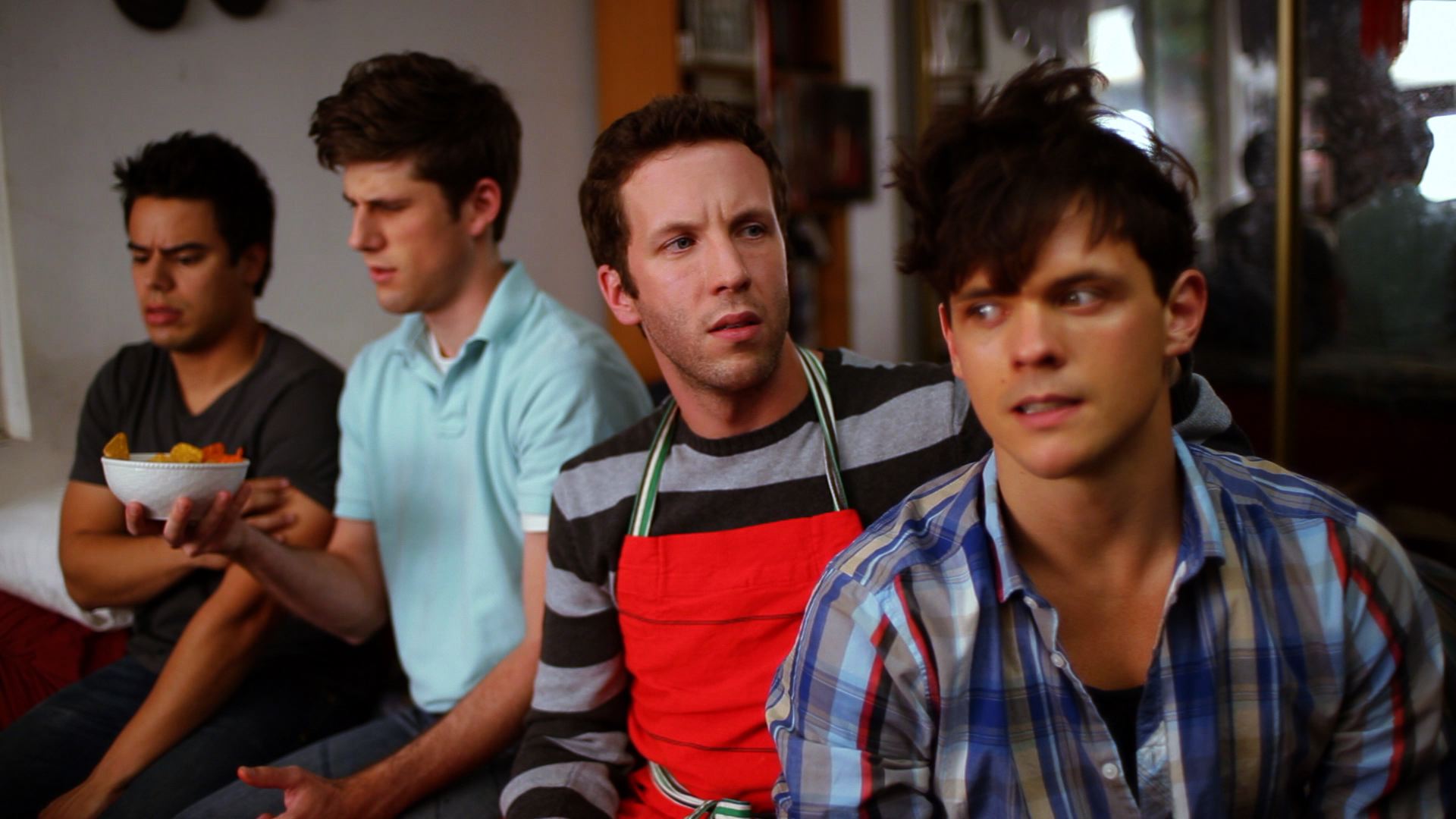The Last Laugh: Are Women Funnier?
Community creator Dan Harmon posed this question in a recent interview, surprising everyone.

Harmon has also divulged that having a 50% female writing staff, originally a mandate from former NBC exec Angela Bromstad, has turned out to be invaluable to the clever writing on his show.
“There’s a literal, actual difference between men and women, and it’s in their blood, and it’s in their brains, and it’s in their fingertips, and it’s in our conversations,” Harmon said. “I think women are different, and I think having them in the room is crucial to a family comedy, ensemble comedy, television comedy, where half the eyeballs on your show are women … I think we have to stop thinking of it as a quota thing and think of it as a common-sense thing.”
And why wouldn’t female writers come up with better jokes for female characters? Harmon mentions that his gal writers come up with the best zingers for Britta, and it’s also been noted that a lot of great jokes work better when told by women.
If the conversation is changing, and women in comedy are finally coming into our own, what does this mean for the men? Could it be part of why men are feeling so manxious?
As evidenced by several upcoming fall season comedies about the crisis of masculinity in an increasingly emasculating world, the more success women achieve in any male-dominated field, the more threatened men feel. The creative inspiration behind many of these new shows can be traced back to an Atlantic article entitled The End of Men, which examined this crisis. The article highlighted how women are outpacing men in earning college degrees, and noted that “The postindustrial economy is indifferent to men’s size and strength. The attributes that are most valuable today — social intelligence, open communication, the ability to sit still and focus — are, at a minimum, not predominantly male.”
The “manxiety” issue is highlighted by Lane Moore of Jezebel in her discussion of the fall TV season. “What’s interesting about the trend is that, in many ways, one of the reasons we keep hearing about the ‘masculinity crisis’ is because it’s being pushed to the forefront under the guise of ‘Women are becoming too powerful, so men are becoming wimps. We must put a stop to this!’” Moore writes. “This mind-set completely ignores the possibility that pushing for a regimented view of what is masculine and what is not is undoubtedly contributing to the ‘crisis’ itself.”
The crisis of masculinity is explored in Comediva.com’s own web series “Guy Time”, written by yours truly and directed by Emily McGregor. When we created “Guy Time,” we set out to tell a story that was a play on gender roles, but in doing so, first and foremost, we sought to produce the greatest comic results. While manxiety was a theme inherent to our story, Emily and I agree that it took on a different meaning as a “female fantasy” created by women.
“The fact that it was made by women makes it easier for men to like and laugh at the show,” McGregor said. “Men can interpret the show’s humor more like fun, schoolyard banter between sexes. If it were made by men, I’m not sure if the gender role reversal would be received in the same way. Straight dudes might even just write it off as ‘gay.’”
And certainly a generational gap comes into play here as well. As discussed by Christopher Moynihan, whose show “Man Up!” is one of the manxious sitcoms premiering on ABC this fall, “My grandfather fought in World War II. My dad was a cop in New York in the 1960s and ’70s during the riots in the Bronx. I’m in my 30s, wear Converse every day and drink nondairy hazelnut creamer.”
While the struggle to be a “real man” is explored in our show “Guy Time,” this crisis has apparently been largely incomprehensible to men from previous, ahem, “manlier” generations.
“Men in their 20s and 30s seem to love the show and are comfortable laughing about themselves in this way. The only negative reactions have been from the over 50 set who don’t find these ‘girly men’ terribly funny,” McGregor said. “The reaction gap strikes me as a possible reflection of how our views on gender are shifting to be more fluid and diverse.”
And psst, I’ll let you in on a secret. According to our mystical sources from the Internets, about half the visitors to Comediva.com are male. We know you’re there, boys. You just couldn’t stay away, could you? We don’t blame you.
If a site like Comediva.com, created by and for women, marketed directly to women, and featuring “refreshingly unashamed female-driven comedy,” has attracted such a large male audience, then the comedy playing field is truly becoming more even, in a very promising way.
“I think this series and Comediva.com demonstrate how you can make and market content for women and men will still be avid consumers,” McGregor said. “Take that, Sterling Cooper!”
****

